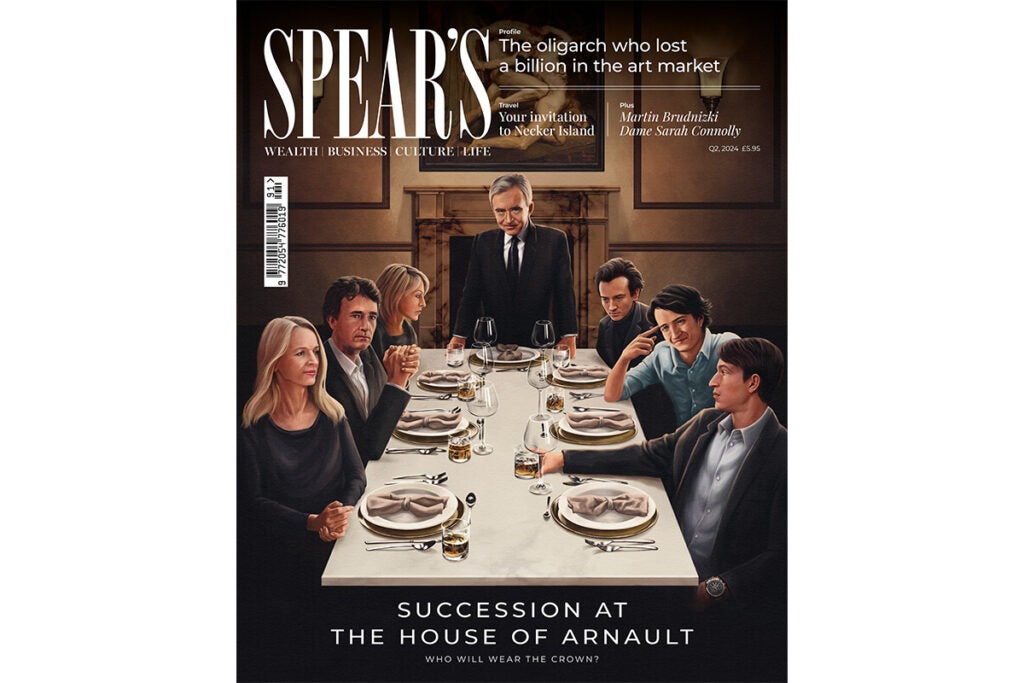
Family wealth creators must walk a tightrope. Most want to pass on at least some of their wealth to future generations, providing them with a good start and a degree of protection. But, increasingly, they also want to ensure that their inheritors have a sense of purpose and feel spurred on to make a contribution to the family’s future P&L. As Franklin Roosevelt said in 1933, ‘Happiness is not in the mere possession of money; it lies in the joy of achievement, the thrill of creative effort.’
Wealth erosion is a very real risk. Estimates vary, but studies indicate that 70 per cent of wealthy families are likely to lose their wealth by the second generation and 90 per cent by the third. Dennis Jaffe of Wise Counsel Research estimates that fewer than 1 per cent of family enterprises outlast ‘G3’ and actually achieve growth in their wealth.
Jaffe believes families have to be more than just ‘related’. They have to make an active decision to be what he refers to as a ‘Family of Affinity’ and to codify their key organising principles in a legally binding way. This will include mechanisms to deal with disagreements, member exits and re-entry, and a system of communication to ensure that this is understood by all.
The importance of trusts

Creating a family office and staffing it with professionals to oversee and manage the family’s assets is part of the solution. The way the wealth is structured and governed may be even more important. Almost all substantial family wealth is held in trusts, which put the ownership of family businesses and other assets into the hands of professional fiduciaries. Such structures help to ensure fairness and can preserve cohesion by considering the interests of all family members entitled to benefit, but they can also be a double-edged sword. They can make the family feel they are no longer masters of their own destiny, fanning any flames of discontent. Some of the very wealthiest families are addressing this challenge by setting up private trust companies, often referred to as PTCs or family trusts.
A PTC is a legal entity that provides trustee services exclusively to a single family group. This means that, instead of using corporate trustees, the family has trustees that they employ and that focus solely on their specific needs. It is perhaps a natural extension of a family office and, in some cases, families merge their PTC with the family office to bring everything under one roof. Their functions are very distinct, however. Unlike the family office, a PTC has fiduciary status and its main function is to serve as an ‘umbrella trustee’ for the family trusts. It has become the holy grail for the family seeking ultimate flexibility, control and privacy.
[See also: Succession at the House of Arnault: who will wear the crown?]
Unsurprisingly, PTCs are a popular planning tool for dynastic family wealth. While there is very little data on how many there are, those of us who advise substantial families observe that many of them are turning to such a solution. Katie Booth, founder of Amber Trust in the Bahamas, confirms that the more sophisticated private offices are increasingly opting to be licensed to provide company and trust administration services. But I should be clear that there is nothing new about PTCs themselves. Rather, they are a reminder of the circularity of history; many of the established trust companies in the US, such as Bessemer Trust, started as PTCs for a single family back in the 19th century.
‘No regrets’: why private trust companies can be a powerful tool
Creating your own PTC requires financial outlay and concerted effort, of course, and is generally only appropriate for those with assets in the high-nine-figure range, but most who have gone down this path say they have no regrets. A PTC can be a powerful tool. It also offers the potential for more personal service, stronger confidentiality and better communication; the family can select the board of directors and those who handle the information. Conversely, with a corporate trustee, many more people are likely to be involved, the family does not get to choose the board, and staff turnover and takeovers or mergers can bring unwelcome change.
The director of a newly created PTC in Jersey told me the experience had been transformational for the family he advises. Their own team of fiduciaries are committed to the family and have made them feel better served, with vastly improved communication. They have also saved around 40 per cent compared with the fees they were paying to their corporate service providers. If their experience is anything to go by, ‘going private’ could help a good number of enterprising families to flourish for many generations to come.
Annamaria Koerling is managing partner of Delfin Private Office
This feature first appeared in Spear’s Magazine: Issue 91. Click here to subscribe







